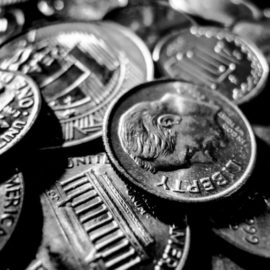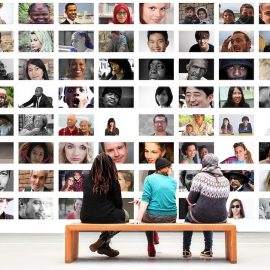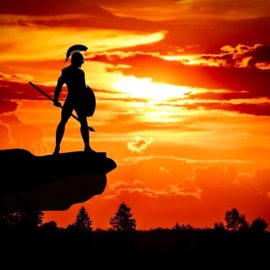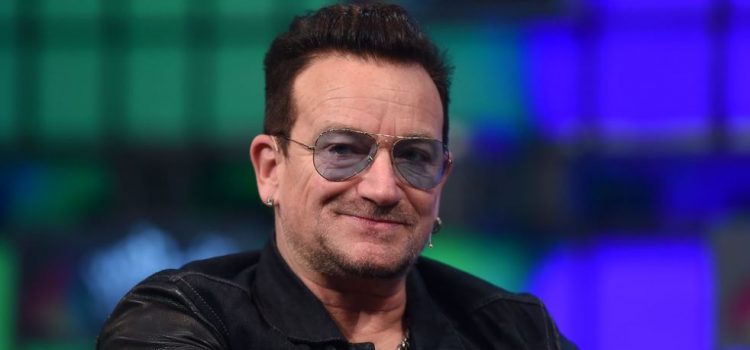
Who is Bono, and how did he become famous? What is Bono famous for?
Bono is the lead musician in the band U2 and a celebrity activist who fought for debt relief and AIDS relief in Africa. A look at Bono’s trajectory is a good case study of celebrity and fame.
Continue reading to learn about Paul “Bono” Hewson’s backstory and what he’s famous for now.
About Paul “Bono” Hewson
Who is Bono? Paul “Bono” Hewson was born in Dublin, Ireland, on May 10, 1960. Though he was interested in music from a young age, his direction in life was also defined by family trauma and his growing Christian faith. Bono recalls how his childhood was shaped by the death of his mother, his introduction to evangelical Christianity, and the adolescent friendships that would launch him into adulthood.
In his memoir Surrender, Bono writes that his first exposure to music was through his father, who sang tenor and was a huge opera fan, though neither of his parents showed much interest in Bono’s early musical leanings. Had their lives gone differently, that might have changed, but sadly, Bono’s mother died when he was only 11. After her passing, Bono’s family hid their feelings of grief behind anger and silence. Bono became a classic latchkey child—taking care of himself, eating leftovers and canned food, and finding more emotional connection with his neighborhood friends than he ever did at home. It was one of those friends who gave Bono the nickname that would stick with him for life, rechristening him after the local “Bonavox” hearing aid store.
(Shortform note: Bono’s experiences as a teen had a deep impact on his emotional development. While he never identifies as a latchkey child, a term most associated with the later Generation X, he met the classic definition—a child left to fend on his own by a working parent. In addition to being left by himself, Bono wasn’t free to openly grieve the loss of his mother. Experts write that childhood grief is often sporadic and invisible—even in an environment where grief is allowed, children may hide their grief or only let it out in short bursts. However, if childhood grief is suppressed, it can lead to depression, withdrawal, and loss of appetite, all of which Bono describes in his teen years.)
Though Bono was born right in the middle of the two sides of Irish religion—his father being Catholic and his mother Protestant—Bono’s friends showed him the more outgoing, evangelical side of Christianity. Bono describes attending Christian summer camps and events at the local YMCA, and though he was never totally sold on the proselytizing messages of Evangelicalism, he felt drawn to God and Jesus as they were shown in the Bible itself.
(Shortform note: Though Bono describes an atmosphere of growing up amid religious tolerance and acceptance, his teen years marked the first of three decades of sectarian religious violence, collectively known as “the Troubles,” that rocked Northern Ireland and spilled into other parts of the country. Though the fighting was ostensibly along Catholic-Protestant lines, it was also about whether Northern Ireland would remain part of the United Kingdom or join the Republic of Ireland. Meanwhile, Ireland’s Evangelical movement began as early as the 1700s, and its congregations continue to grow while attendance at Ireland’s Catholic churches is in decline.)
Perhaps the most important person to come into Bono’s life in this time was Alison “Ali” Stewart, whom he would later marry. They first met at school in 1973, when Bono was 13 years old and still emotionally closed off following his mother’s death. He and Ali began dating three years later while they were both involved in a nondenominational Christian organization called Shalom. Bono says that both then and now, his and Ali’s shared religious faith is a cornerstone of their relationship, though he also muses that he probably transferred his suppressed feelings of love for his lost mother to his new relationship.
(Shortform note: While Bono details his lifelong relationship with his wife, Alison Hewson (née Stewart), he doesn’t go into specifics about her professional life after graduating from University College Dublin in 1989 with a degree in politics and sociology. Alison serves on the board of Chernobyl Children International and works with other charities such as One Young World. Together with Bono, Alison founded the Edun fair trade clothing company to bring jobs and business to developing countries, though Edun closed in 2018 due to financial losses.)
The Band Comes Together
At the same time that Bono started dating Ali, he also responded to a call for members to play in a new local rock band. The world-renowned musical group U2 began in the kitchen of drummer Larry Mullen’s house, where he auditioned his fellow classmates for spots in his new venture. All four future members of U2 were in that room.
U2 first appeared on the music scene during the late ’70s heyday of punk rock, hard on the heels of bands like the Sex Pistols and the Ramones. Bono remembers feeling particularly energized by the raw simplicity of the Ramones’ music—in fact, U2 won their first TV gig by performing a Ramones song as their audition. However, Bono felt they were a stronger band whenever they played songs they’d written themselves. They did so in rehearsals, first in their school’s music room and later in a shed at the cemetery where Bono’s mother was buried.
Rock Stardom
For good or ill, the side of the music business that the public is most aware of is the fame and recognition that comes with success. For Bono, the first decade of U2’s rock stardom—a time he equates to U2’s “teenage years” as a band—opened his eyes to a much wider world. He describes the joys of connecting with an audience during a live performance, the privilege of seeing the world from a rock star’s perspective, and how this experience culminated in the recording of U2’s breakout album, The Joshua Tree.
U2 embarked on their first European tour, and Bono describes how every show was a communal experience in which the audience played as big a role as the band. U2 was catching the energy of the punk rock movement, but where punk was cynical at heart, U2’s early music was a celebration of innocence. Bono says that in the magic of a great concert, he wouldn’t just lose himself in the music; he’d enable the audience to do so as well. It was more than just playing well on stage—when the band could truly connect with the crowd and spark the current of excitement running through them, everyone in the room would have a heightened experience almost like a shared state of flow.
(Shortform note: The heightened “flow state” that Bono mentions was first identified by psychologist Mihaly Csikszentmihalyi. When in flow, you become fully engrossed, lose track of time, and lose yourself in the process, exactly as Bono describes. While fans may be aware of the differences between a band’s live performance and a studio recording, from the musician’s point of view, each requires a different skill set. Live performance requires improvisation and showmanship, whereas recording focuses more on composition and musical precision.)
Bono’s Activism
Part of U2’s “self-serious” public image wasn’t because of the band’s music but because of Bono’s work as an activist. Bono’s eyes were opened to the problems of poverty, sickness, and starvation when he and Ali went on mission trips in the ’80s, so as his personal platform grew with U2’s fame, he made use of it to shine a spotlight on certain issues. Bono speaks about his advocacy for debt relief in Africa and the need to combat the global AIDS crisis. He also acknowledges some of the problems involved with Western philanthropy and celebrity activism.
One of Bono’s core beliefs is that problems such as poverty and hunger represent a failure of justice, not a lack of charity. The primary injustice he addressed in the ’90s as a spokesman for the Jubilee 2000 campaign was the vast amount of debt left over from the Cold War that the world’s poorest nations owed to the richest. Bono argues that having to pay off that old debt prevented whole countries from investing in themselves. The point of the Jubilee 2000 project was to get the lender nations, including the US, to cancel poorer countries’ debt altogether, freeing their resources for education, health, and infrastructure. The Jubilee 2000 campaign was successful, and its core group of activists looked for their next project.
(Shortform note: The Cold War debt that Bono refers to grew dramatically in the 1970s. As the US and the Soviet Union wooed other countries to their respective forms of government, Western nations offered low-interest loans to developing countries in return for staving off Communist movements. During this time, the collective debt of the developing world grew from $70 billion to $750 billion, which when coupled with the Great Inflation of the 1970s, threatened a massive, worldwide loan default. Prior to the Jubilee 2000 campaign that Bono became heavily involved with, the World Bank and the IMF tried to relieve the debt crisis, but in ways that imposed heavy restrictions on borrower countries’ economic policies.)
The issue that Bono and his colleagues tackled next was the African AIDS epidemic. However, Bono points out that with the change in US government in 2001, he now had to reach out to President George W. Bush after having spent years mocking the president’s father. To build a bridge with the new administration, Bono connected with conservative politicians over their shared Christian faith. At the same time, he made the case for AIDS relief to the American public by touring the US’s more conservative states along with other performers. Their efforts were phenomenally successful—in 2003, President Bush committed $15 billion to AIDS reduction in Africa, and that US spending on AIDS relief would eventually top $100 billion.
(Shortform note: Finding common ground between people with differing views is especially challenging in the modern, polarized political landscape. The authors of Crucial Conversations discuss strategies for doing so that Bono intuited, according to his memoir. The first step is to understand the other person’s point of view, which can only be done by listening to them with sincere curiosity. Then, instead of arguing points of disagreement, talk about the things you agree on and build the discussion from there. President Bush’s AIDS relief program, brought about by these types of open discussions, has survived through both liberal and conservative administrations, though its ongoing funding is continually up for debate.)
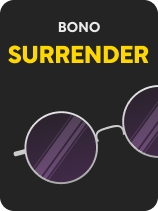
———End of Preview———
Like what you just read? Read the rest of the world's best book summary and analysis of Bono's "Surrender" at Shortform.
Here's what you'll find in our full Surrender summary:
- The memoir of Irish rockstar Bono, and the band U2
- How Bono balanced fame with fatherhood, marriage, and religion
- How Bono used his fame to become a voice for activist groups

